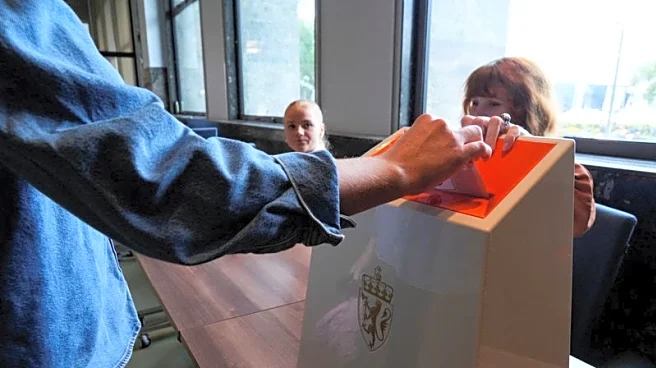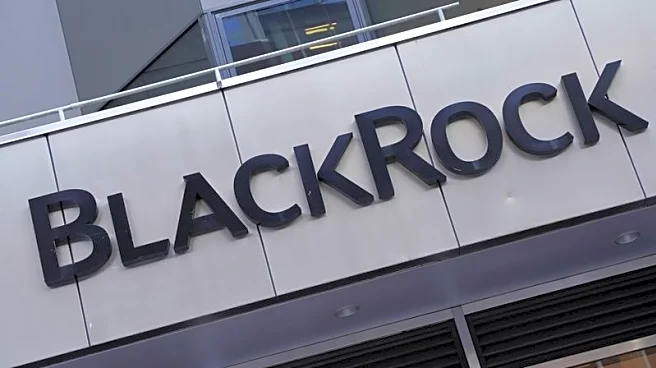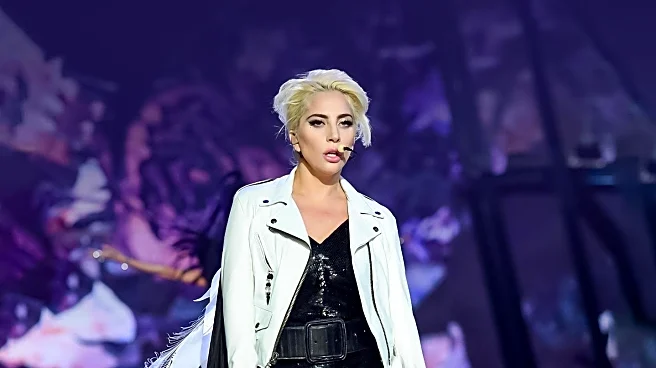By Gwladys Fouche and Ilze Filks
OSLO (Reuters) -Norway will vote on Monday on the final day of a parliamentary election dominated by concerns over rising living costs at home and turmoil in international
politics, with the ruling Labour Party narrowly favoured to remain in office.
A left-wing bloc of Labour and four smaller parties is seen winning 88 seats in parliament, three more than the minimum needed to secure a majority and down from a combined 100 seats in 2021, according to an average of recent opinion polls.
On the right, the populist Progress Party, the centre-right Conservatives and two smaller groups look set to win the remaining 81 seats, but the race remains within the margin of error and could depend on how some of the smallest parties fare.
Inflation, taxes and the quality of public services were key issues in the campaign, and the outcome could have an impact on the oil and gas industry and power supplies to Europe, as well as the management of Norway's $2 trillion sovereign wealth fund.
But the wars in Ukraine and Gaza, and Donald Trump's return to the White House, also loomed large, and analysts said this could benefit Labour Prime Minister Jonas Gahr Stoere, a former foreign minister who presents himself as a safe pair of hands.
Benjamin Tegelaar-Breiby, 29, a software developer speaking to Reuters in Oslo, said climate change, integration, the war in Ukraine and the Palestinian cause were important, and that he hoped for a centre-left win in the election.
"I feel like the world is kind of crumbling around us and so I would like stability in Norway. That's kind of what I'm voting for," he said.
While the election remains close, the left-wing bloc appeared to have a momentum in the most recent opinion polls, Johannes Bergh, head of the national election studies programme at the Oslo-based Institute for Social Research, said.
"So if you were betting, you would probably guess that the centre-left would win," Bergh said.
At least nine political parties are expected to secure seats in the election which ends at 1900 GMT, but only the leaders of Labour, Progress and the Conservatives are candidates for prime minister.
Stoere has ruled since 2021 with the backing of the agrarian Centre Party and the Socialist Left, but polls show he may need to also rely on the Communist party and the Greens in a mix some analysts have dubbed a "tutti frutti" coalition.
Demands from Greens and Communists may include tougher restrictions on oil and gas exploration, more tax on the wealthy and high earners, and more overall spending from Norway's sovereign wealth fund, the world's largest.
Labour is seen winning some 27% of the vote, this month's pollofpolls.no average showed, which would make it the biggest party.
In the right-wing camp, former prime minister Erna Solberg of the Conservative Party hopes to return to power with promises of broad tax cuts for households as well as a reduction in the taxation of wealth, which businesses say discourages investment.
But as in other Western countries, voters are increasingly turning to more populist right-wing options. Sylvi Listhaug's anti-immigration Progress Party is currently polling around 21% of the vote, comfortably ahead of the Conservatives on 14%.
Solberg and Listhaug openly disagreed on who should be the next prime minister in the case of a right-wing victory, leaving some voters wary of backing either of the two.
(Reporting by Gwladys Fouche, Tom Little, Nora Buli, Ilze Filks and Terje Solsvik; Editing by Susan Fenton)









